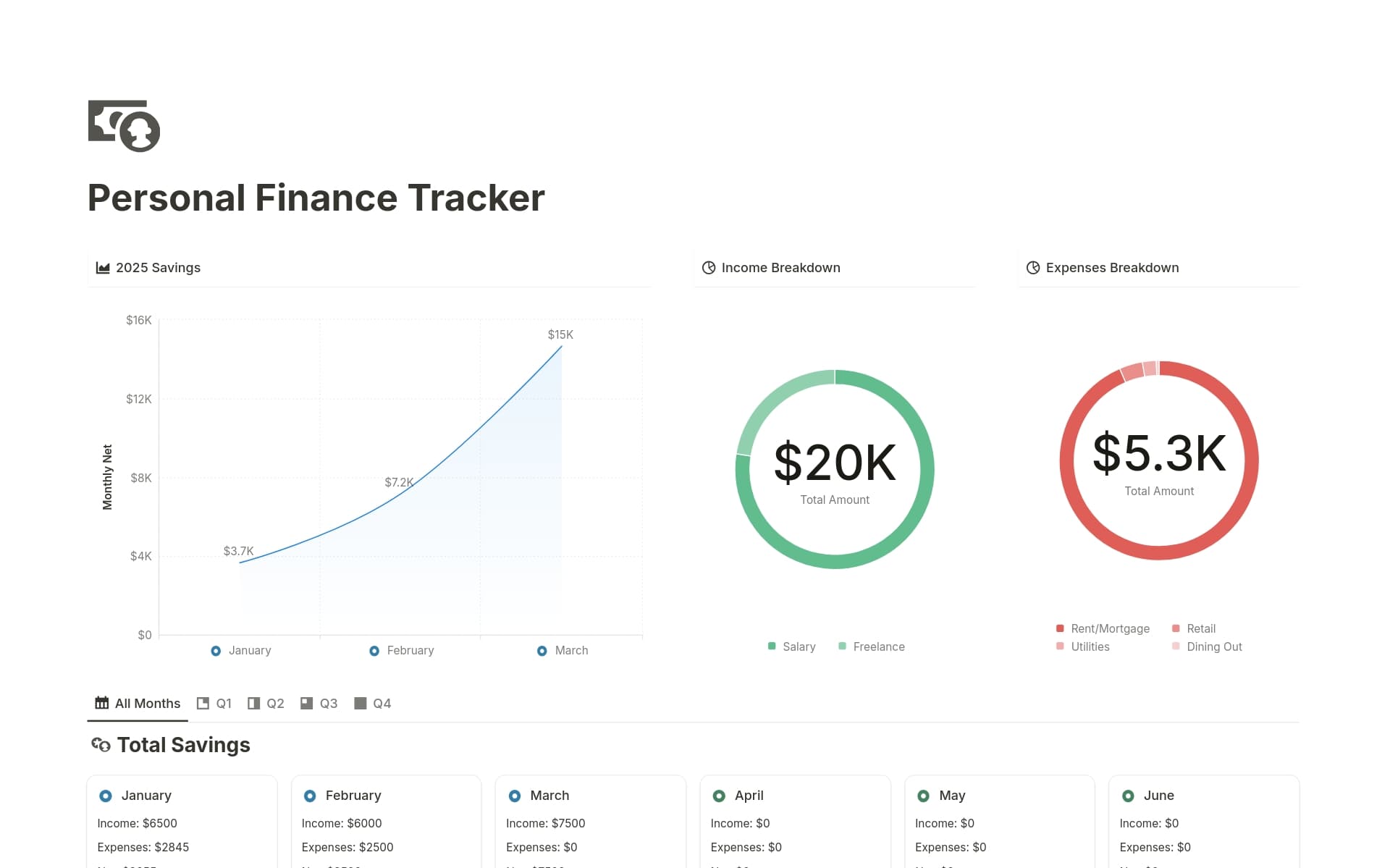Project planning is essential for organizing your goals, managing time effectively, and ensuring that tasks are completed efficiently. A Project Planning template in Notion can streamline this process by providing a structured framework that helps you visualize timelines, assign tasks, and track progress. It simplifies complex project management, making it more accessible and manageable.
Before you dive into creating your own Project Planning system, take a look at these Notion templates designed to make project management easier and more effective.
What Should Project Planning Templates Include?
Choosing the right project planning template in Notion can streamline your workflow and enhance your project's organization. Here are key components to look for in a high-quality template:
Task Management: The template should offer a comprehensive system for tracking tasks, including deadlines, priorities, and assignment to team members.
Timeline Views: Effective templates provide visual timeline views, such as Gantt charts, to help you understand project timelines and dependencies at a glance.
Resource Allocation: Look for templates that allow you to manage resources, ensuring that you can track budget, manpower, and materials efficiently.
Collaboration Features: A good template should facilitate easy collaboration by integrating features that allow team members to communicate and update status in real-time.
Selecting a template with these components will help you manage your projects more effectively, ensuring that all aspects are covered and easily accessible.
What Should Project Planning Templates Avoid?
Choosing the right project planning template in Notion can streamline your workflow and enhance productivity. However, certain features can complicate or clutter your project management process. Here are three key components to steer clear of:
Overly Complex Features: Avoid templates with excessive automations and integrations that can overwhelm and confuse rather than help. Simplicity often leads to better usability and efficiency.
Non-Customizable Elements: Templates that don't allow adjustments can restrict your project's unique needs. Opt for templates that are flexible and adaptable to your specific requirements.
Generic Task Categories: Steer clear of templates that use very broad or vague task categories. These can lead to miscommunication and inefficiencies. Specificity in task categorization is key to clear project guidelines.
Remember, the best template is one that fits seamlessly into your project's scope and team's workflow without adding unnecessary complexity or restrictions.













